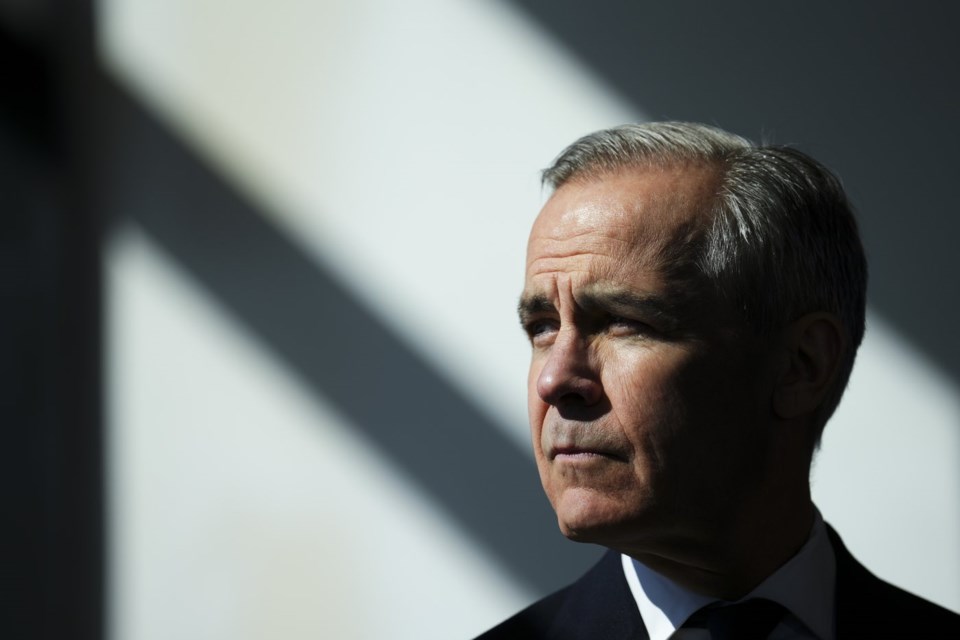OTTAWA — Party leaders emphasized familiar themes Thursday as they criss-crossed the country to shore up support in the final stretch of the federal election campaign.
Conservative Leader Pierre Poilievre began Thursday in Halifax — where he pitched a promise of change for Canadians struggling to afford life's essentials — before heading to Saskatoon.
In Coquitlam, B.C., Liberal Leader Mark Carney spoke about bringing Canadians together to build up the country to fight U.S. President Donald Trump's trade war.
NDP Leader Jagmeet Singh visited Winnipeg to tout his party's success in pushing the minority Liberal government to make strides on dental care and pharmacare.
Canadians will choose their next government on Monday.
With just a few days of campaigning left, leaders are pounding home key messages and setting their sights on ridings they hope to flip — or ones they risk losing.
The Liberals are widely seen to be leading in the polls, with the Conservatives in second place and the Bloc Québécois, NDP and Greens trailing behind.
Much of the support Poilievre's Conservatives enjoyed until recently was coming from younger men and communities of newcomers to Canada, said Kathy Brock, a professor in the school of policy studies at Queen's University in Kingston, Ont.
"He had played very well with those groups over the summer and into the fall. So if he can win some of those back, it might tip some of the seats in Ontario," she said in an interview. "But they're really going to have to play on the bread-and-butter issues that he's been emphasizing."
In Halifax, Poilievre predicted a gloomy future of more crime and higher inflation under a Liberal government led by Carney.
The Conservative leader cited a sobering scenario produced by a little-known federal policy unit that publishes reports on trends and possible disruptions to Canadian life.
The Policy Horizons Canada report suggests that by the year 2040, people might lose faith in traditional notions of "moving up" by climbing the social and economic ladder.
The report also says a loss of belief in social mobility could make space for positive ideas — a rejection of conspicuous consumption and a new focus on policies that promote health care, housing, the environment and education for its own sake.
Poilievre said many people in Canada already feel desperate, unable to afford a home or buy a car after a decade under the Liberals.
He said Thursday that if his party is elected, it will scrap Canada's electric vehicle sales quotas.
Canada has mandated that 20 per cent of all new vehicles sold must be electric by 2026, a figure that rises to 100 per cent by 2035.
Poilievre called the EV mandate a "Car-ney tax" and said it will cost consumers more and deny Canadians the right to choose what they drive.
Carney spent most of his day Thursday talking about Canada and Trump, being forced to admit that Trump brought up his notion of making Canada a U.S. state during their first bilateral call on March 28. He was peppered with questions about it after a CBC/Radio-Canada article, citing confidential sources, said Trump had raised the idea of Canada becoming a state during the first phone call between the two leaders on March 28.
When Carney first spoke to reporters in Montreal shortly after the call last month, he described the discussion as "cordial" and said Trump treated Canada with respect as a sovereign nation.
Carney said Thursday that Trump "absolutely did" bring it up, but defended his earlier description of the call and said he made it clear to Trump that Canada would never become a U.S. state.
"Look, the president has certain things in his mind that he reverts back to all the time, but treated me as the prime minister, not as something else," he said.
Singh indicated Thursday the NDP would fight to ensure that health care, environmental regulations, labour and treaty rights are kept off the table when new trade talks begin with Washington after the election.
Although the campaigning phase is almost over, the parties' work will not be done until the last ballot is cast on Monday.
"I think what all of the parties, but in particular the Liberals and the Conservatives, are really thinking about seriously is their ground game," Brock said. "How do they pull the vote and ensure the vote comes out for them?"
— With files from Sarah Ritchie, Dylan Robertson, and Kyle Duggan, David Baxter in Toronto, Anja Karadeglija in Coquitlam, B.C., and Michael MacDonald in Halifax
This report by The Canadian Press was first published April 24, 2025.
Jim Bronskill, The Canadian Press



